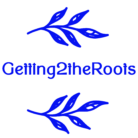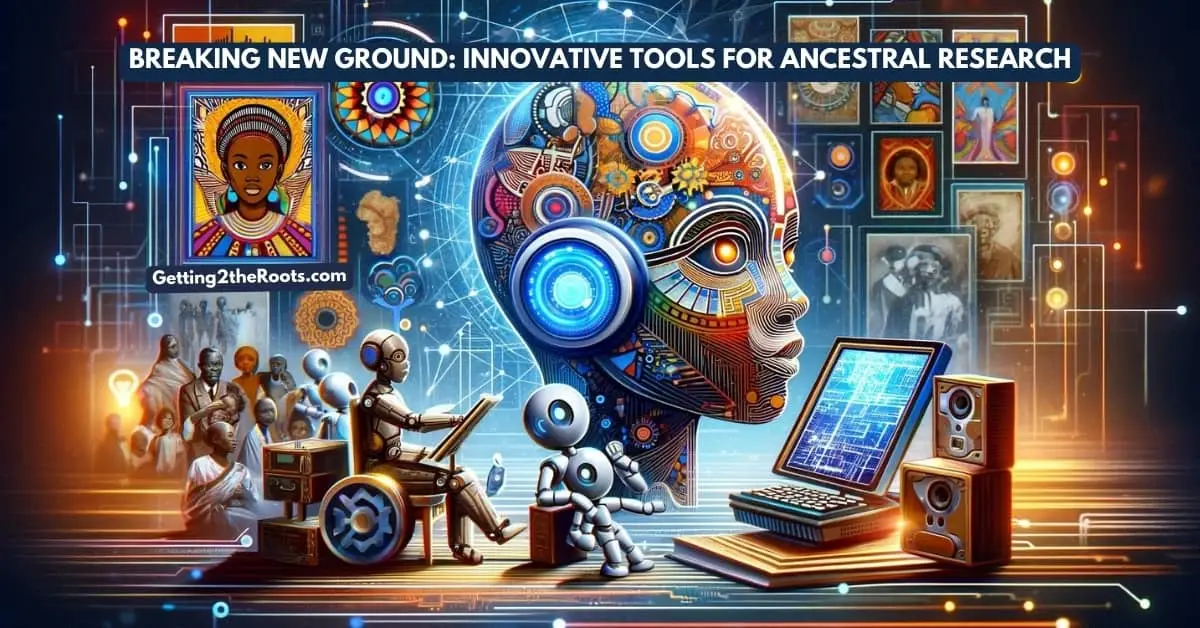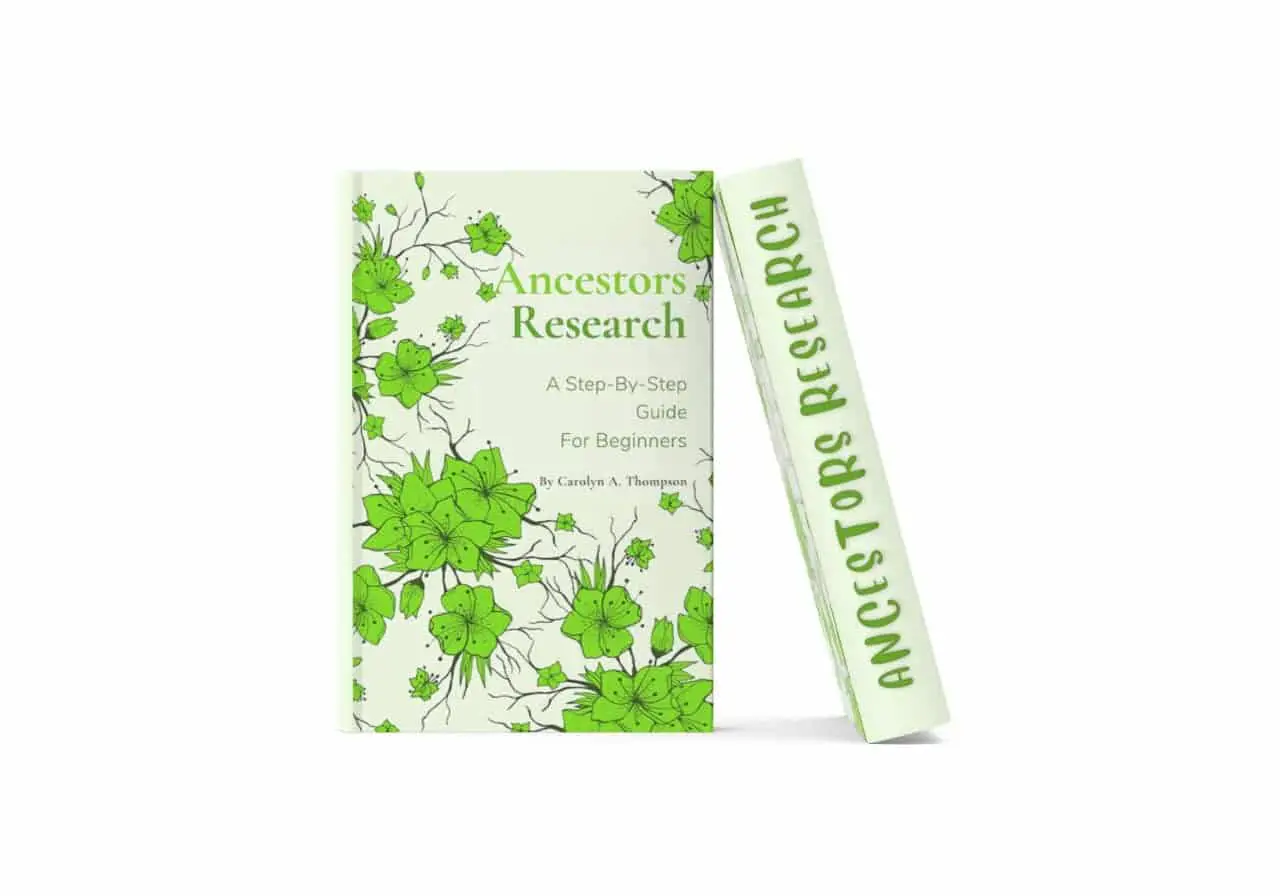With the latest tools for ancestral research, genealogists can now navigate the past more efficiently through digital archives and DNA testing.
In this article, we’ll delve into how these technologies work together to enhance our understanding of family histories and ancestral origins.
Are you ready to start your genealogy journey? I’ve got you covered! 🎉 My free beginner’s guide will walk you through the basics of ancestor research. [Click Here]. For even more tips and tricks, check out the resources on my page. [Click Here] 🎁
Unlock deeper insights and expert tips for tracing your family history by exploring my playlist: The Journey to Trace Your Ancestors,” This handpicked playlist guides you through uncovering your ancestral roots and genealogical connections. Click here to watch: [Click Here]
How Has Technology Transformed Tools for Ancestral Research?
Key Technological Advancements in Ancestral Research
Today’s world has seen a wave of groundbreaking tech advancements that have completely transformed how we research our family histories. Digitalization and genomics are the biggest game-changers in this revolution, two fields that work hand in hand to uncover our past like never before.
Digital archiving has become a shining light for overcoming the tough challenges often faced in genealogy research. Many organizations have diligently scanned, organized, and made available online a vast amount of historical records, important registries, and documents.
The move to digital has cut through the barriers of location and time that used to hinder genealogists. Take census records, for example, which are a goldmine of information for tracing family histories. Now, with just a few clicks, a researcher can explore the rich details of ancestries captured in census data from different centuries and parts of the world.
The Role of Search Algorithms in Digital Genealogy
With resources now available online, search algorithms have become crucial in finding relevant records. These algorithms use artificial intelligence to recognize patterns and predict connections, breathing new life into the process of linking records together.
They reach across databases, smartly identifying possible family ties and genealogical matches, skillfully handling the complexities of language variations and mistakes.
In parallel to the digital revolution, modern genomics rides the crest of biotechnology, lending an unprecedented magnitude of credibility and precision to the often ambivalent narrative of genealogy.
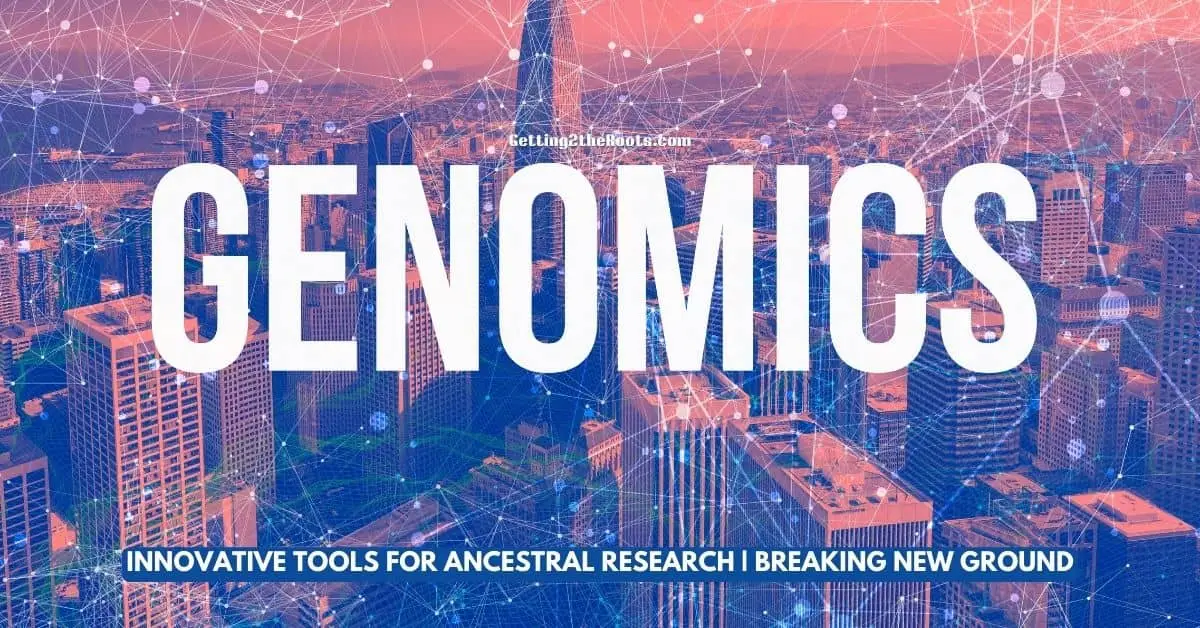
How Does Genomics Enhance Tools for Ancestral Research?
DNA Testing as a Powerful Tool for Ancestral Research
DNA testing serves as a powerful addition to traditional record-keeping methods, revealing connections between people in ways we never thought possible. It’s particularly useful for navigating challenges like common surnames, unrecorded adoptions, or cases of uncertain paternity.
In parallel to the digital revolution, modern genomics rides the crest of biotechnology, lending an unprecedented magnitude of credibility and precision to the often ambivalent narrative of genealogy.
Pinpointing Ancestral Origins with DNA
Additionally, the places our ancestors came from, which we used to guess based on population and migration trends, can now be pinpointed accurately using a person’s DNA.
The specific areas highlighted by markers in our DNA act like a precise navigation system, guiding us directly to our ancestral origins.
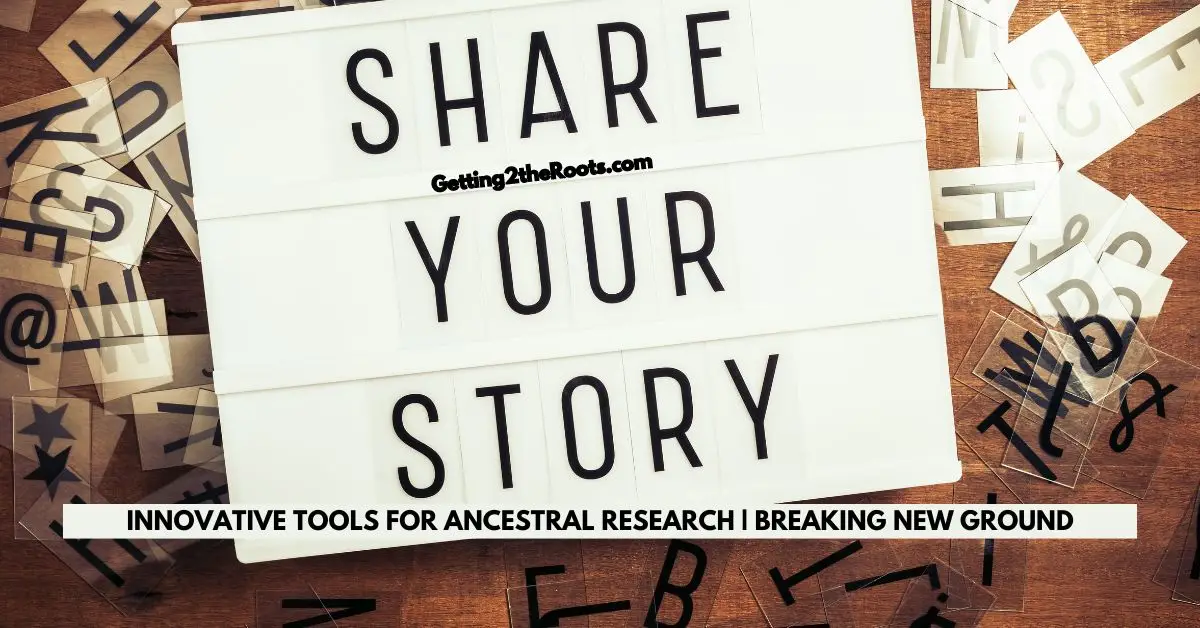
A Personal Story About DNA testing and Ancestral Research
Speaking of DNA testing, it’s a tool that can truly unlock the mysteries of your family’s history. Let me tell you a story about how it impacted me personally.
A while back, I was intrigued by a family tale that seemed almost too peculiar to be true. It involved my grandfather, Henry Creal, Jr., and a hunting dog, leading me to question our family’s lineage. To seek the truth, I turned to DNA testing, a tool we discussed.
The results were nothing short of miraculous. The test debunked the myth and affirmed my grandfather’s place in our family tree.
It also unveiled a hidden branch: my second great-grandfather, Harrison Duckworth. This discovery wasn’t just a name. It was a door to new connections and a deeper understanding of where I came from.
This journey demonstrates the real influence modern technologies have on our quest for personal history, all thanks to a straightforward DNA test. It’s a vivid reminder that behind every data point, there’s a story waiting to be discovered.
So, as we continue to explore the tools available for ancestral research, remember that each one has the potential to reveal surprising chapters of our own lives.
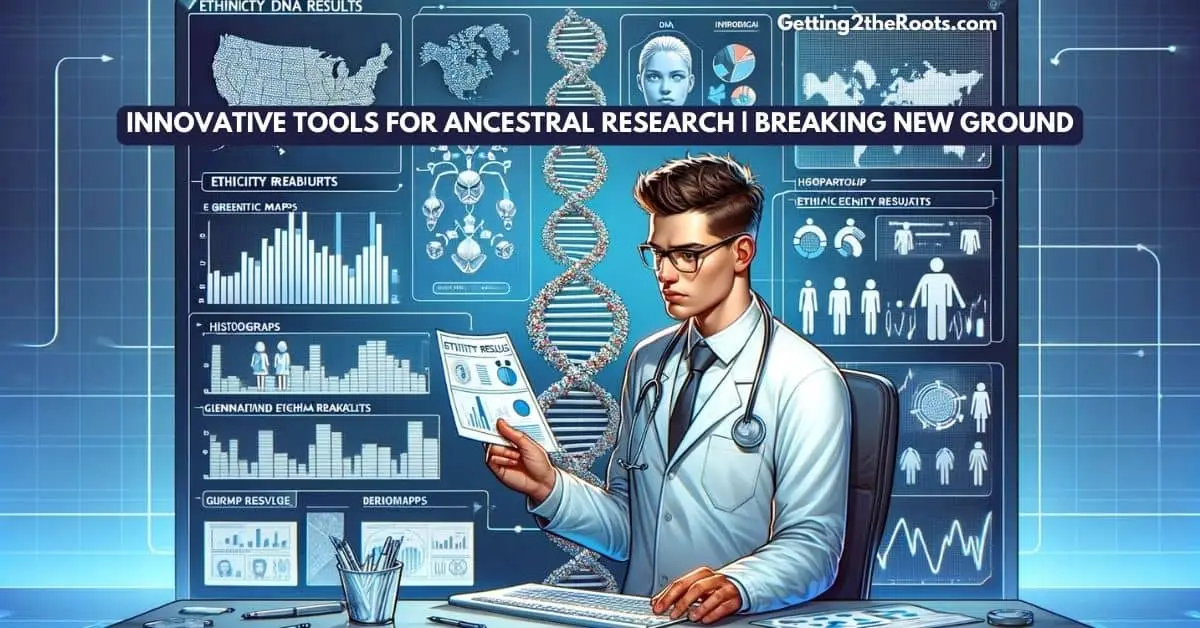
What Challenges and Ethical Considerations Arise with Advanced Tools for Ancestral Research?
Challenges of Interpreting Vast Amounts of Genealogical Data
Yet, it’s essential to comprehend that the torrent of information that technology brings forth places a stern demand on the researcher’s interpretive abilities.
Critical thinking and sound judgment remain the bedrock of genealogical research. Online transcription errors, algorithmic false positives, and ambiguity inherent in genetic data all require cautious examination.
The rise of modern technology has made navigating the complex maze of genealogy easier, turning the so-called “brick wall” obstacles into something we can get past.
However, it’s important to see technology as a tool that helps us make discoveries, not as a magic solution. Genealogists’ breakthrough moments occur when determination meets technological development, revealing mysteries that have been hidden in history for centuries.
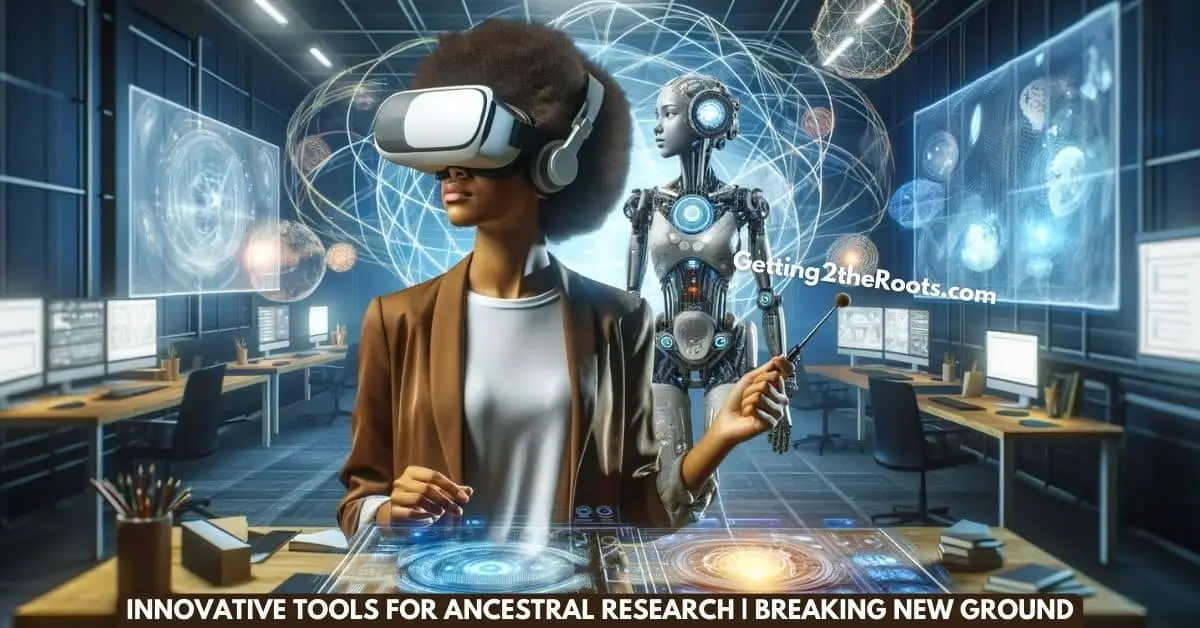
What Does the Future Hold for Tools for Ancestral Research?
As genealogy research advances, new technologies are opening up deeper and more detailed investigations into our history.
The combination of digital archives and DNA analysis not only makes it easier to trace our family lines but also enriches our grasp of the ties that bind generations together.
Every scanned document and DNA result adds complexity and depth to the shared narrative of humankind, making it more accessible to us all.
Digitalization and Democratized Access to Genealogical Data
The digitalization of records has democratized access to historical data, making it possible for anyone with an internet connection to embark on a journey of self-discovery.
This accessibility fosters a more inclusive community of amateur historians and genealogy enthusiasts, bridging the gap between professional genealogists and the general public.
The transparency and availability of data encourage collaboration, with online forums and social media platforms becoming vibrant hubs for sharing insights, solving mysteries, and connecting with distant relatives.
Similarly, the advancements in genomics have not only provided clarity on lineage and ancestry but have also sparked a broader interest in genetics and its implications for personal and public health.
As people learn more about their genetic heritage, there is a growing curiosity about how these genetic markers influence health, traits, and predispositions to certain conditions.
This intersection of genealogy and genomics opens new doors for personalized medicine and a deeper understanding of the human genome.
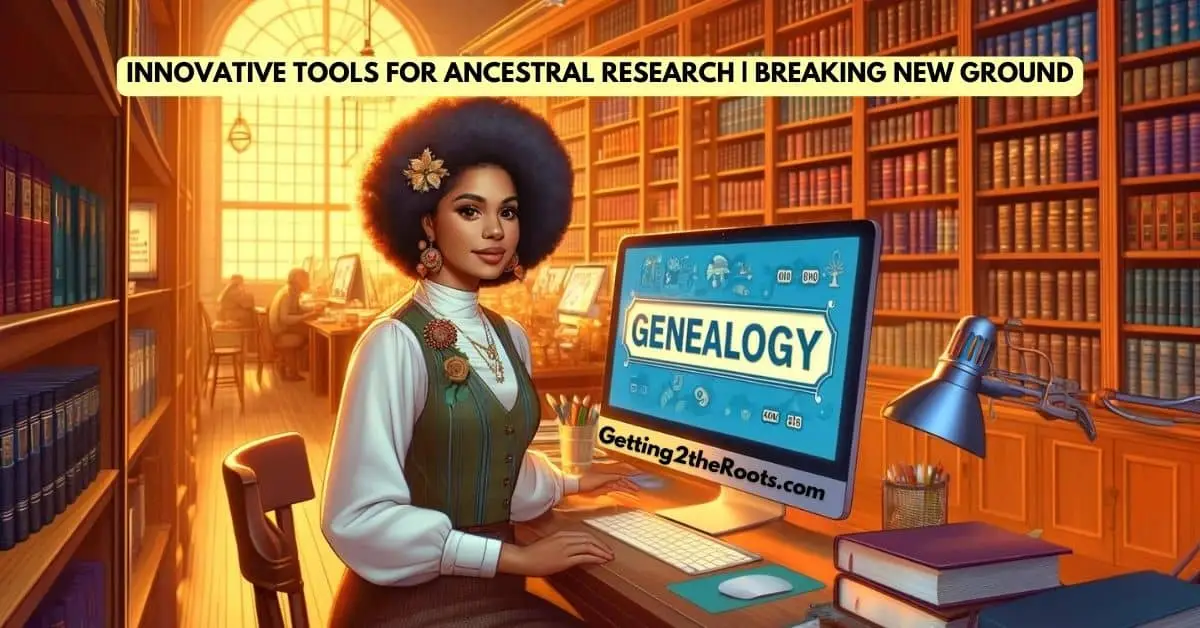
Ethical Considerations in Modern Genealogical Research
However, the flood of information available at our fingertips also emphasizes the need for digital literacy and ethical considerations in genealogy research.
As we navigate through vast databases and interpret complex DNA results, we must be mindful of privacy, consent, and the responsible use of genetic information.
DNA results, the importance of privacy, consent, and the ethical use of genetic information come to the forefront. Researchers and enthusiasts alike must tread carefully, respecting the privacy of living relatives and the sensitive nature of uncovering family secrets.
Anticipating Future Innovations in Genealogy Research
In the future, we can anticipate further innovations that will continue to transform genealogy research. These advancements may include augmented reality experiences that bring historical documents to life.
Advanced DNA testing techniques could offer even more detailed insights into our ancestry. The possibilities are endless. As technology advances, our ability to connect with our ancestors and understand our place in the tapestry of human history will also progress.
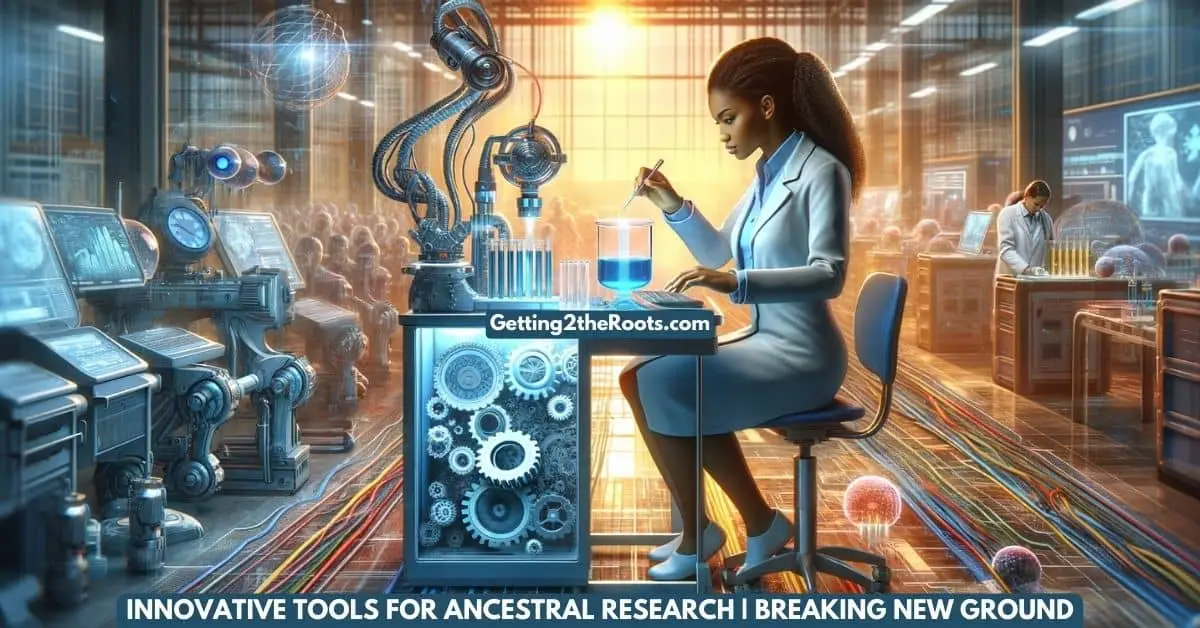
Conclusion On Tools for Ancestral Research:
In conclusion, tools for ancestral research have revolutionized the way we explore our family histories, combining digital archives and genomics for unprecedented accuracy and accessibility.
Despite these advancements, interpreting vast amounts of genealogical data requires critical thinking and ethical considerations to ensure privacy and accuracy.
As we look to the future, continuous innovations promise to further enhance our ability to connect with our past, emphasizing the importance of curiosity, integrity, and respect in genealogical research.
Frequently Asked Questions (FAQ) About Innovations in Genealogy Research
- What are the best tools for ancestral research?
The best Tools for Ancestral Research include digital archives, DNA testing kits, and genealogy software. These resources help you uncover and document your family’s history.
- How can DNA testing help in ancestral research?
DNA testing is a powerful tool for Ancestral Research. It can reveal genetic connections, trace your lineage, and provide insights into your ethnic background.
- Are digital archives reliable for genealogy research?
Yes, digital archives are a reliable Tool for Ancestral Research. They offer access to a vast array of historical records and documents essential for tracing your family history.
- How do I start using tools for ancestral research?
To start using Tools for Ancestral Research, begin with online genealogy platforms, explore digital archives, and consider taking a DNA test. These steps will help you build a comprehensive family tree.
- What ethical considerations should I keep in mind with ancestral research?
When using Tools for Ancestral Research, consider the privacy and consent of living relatives. Respect the sensitive nature of genetic information and be mindful of how you share your findings.
